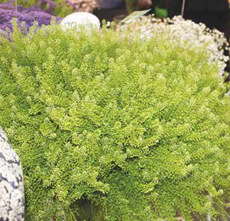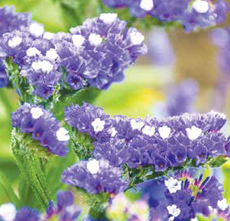 Kenya’s flower industry has long been known for its significant contribution to the global floral export market, primarily centered around the cultivation of roses and other flowers that thrive in the country’s mild and favorable climate. However, there’s currently a noticeable shift occurring within the industry as Kenya embraces the cultivation of summer flowers, marking a promising expansion in its floral portfolio. Thanks to its abundant sunshine and conducive climate, Kenya is now venturing into year-round summer flower cultivation.
Kenya’s flower industry has long been known for its significant contribution to the global floral export market, primarily centered around the cultivation of roses and other flowers that thrive in the country’s mild and favorable climate. However, there’s currently a noticeable shift occurring within the industry as Kenya embraces the cultivation of summer flowers, marking a promising expansion in its floral portfolio. Thanks to its abundant sunshine and conducive climate, Kenya is now venturing into year-round summer flower cultivation.
The remarkable growth of Kenya’s flower industry can be attributed to a combination of factors, including the country’s climate, fertile soils, and the dedication and expertise of its flower growers. Historically, the industry’s focus has revolved around flowers such as roses, carnations, and lilies, with roses taking a dominant position. Nonetheless, the landscape is evolving as an increasing number of small-scale growers recognize the beauty, quality, and profitability of summer flowers, which can complement traditional rose bouquets. Unlike Northern Europe, where summer flowers are typically grown during the summer months, Kenya’s climate allows them to thrive throughout the year.
The impetus behind the cultivation of summer flowers in Kenya is palpable, with growers increasingly drawn to these captivating blooms.
This shift is motivated by several key factors. Growers are diversifying their product offerings to meet the changing demands of international markets. By incorporating summer flowers into their portfolios,
Kenyan flower farms gain a competitive edge within the global industry.
Additionally, the year-round growth cycle enables them to extend production beyond the limitations associated with traditional flowers. This, in turn, helps meet the demand for floral arrangements during seasons when roses are less abundant in their destination markets.
Summer flowers often command premium prices due to their uniqueness, making them a lucrative niche for Kenyan farms. The ability to cultivate them in open fields with minimal requirements further enhances their appeal. This adaptability and profitability are highly attractive to growers in Kenya.
Summer flowers come in a wide array of enticing varieties, contributing a unique touch to floral designs. These blooms are increasingly favored by small-scale growers as they are easier and more cost-effective to cultivate and manage compared to roses, which often require greenhouse conditions and large-scale operations.
 Some of summer flowers cultivated in Kenya include ornithogalum, statice, craspedia, gomphocarpus (‘moby dick’), eryngium, bupleurum, ammi majus, zinnia, scabiosa, cosmos, dahlia, marigold, helianthus (sunflower), dianthus (carnation), lily, gladiolus, anigozanthos (kangaroo paw), and alstroemeria, among others. This diverse range of summer flowers is transforming Kenya into a dynamic and thriving player in the global floral industry.
Some of summer flowers cultivated in Kenya include ornithogalum, statice, craspedia, gomphocarpus (‘moby dick’), eryngium, bupleurum, ammi majus, zinnia, scabiosa, cosmos, dahlia, marigold, helianthus (sunflower), dianthus (carnation), lily, gladiolus, anigozanthos (kangaroo paw), and alstroemeria, among others. This diverse range of summer flowers is transforming Kenya into a dynamic and thriving player in the global floral industry.
The Kenya Flower Council (KFC) plays a pivotal role in supporting the small-scale growers by assisting them in achieving certifications and meeting international standards. They also facilitate connections to global markets, empowering these emerging growers to participate in the trend of cultivating summer flowers.
